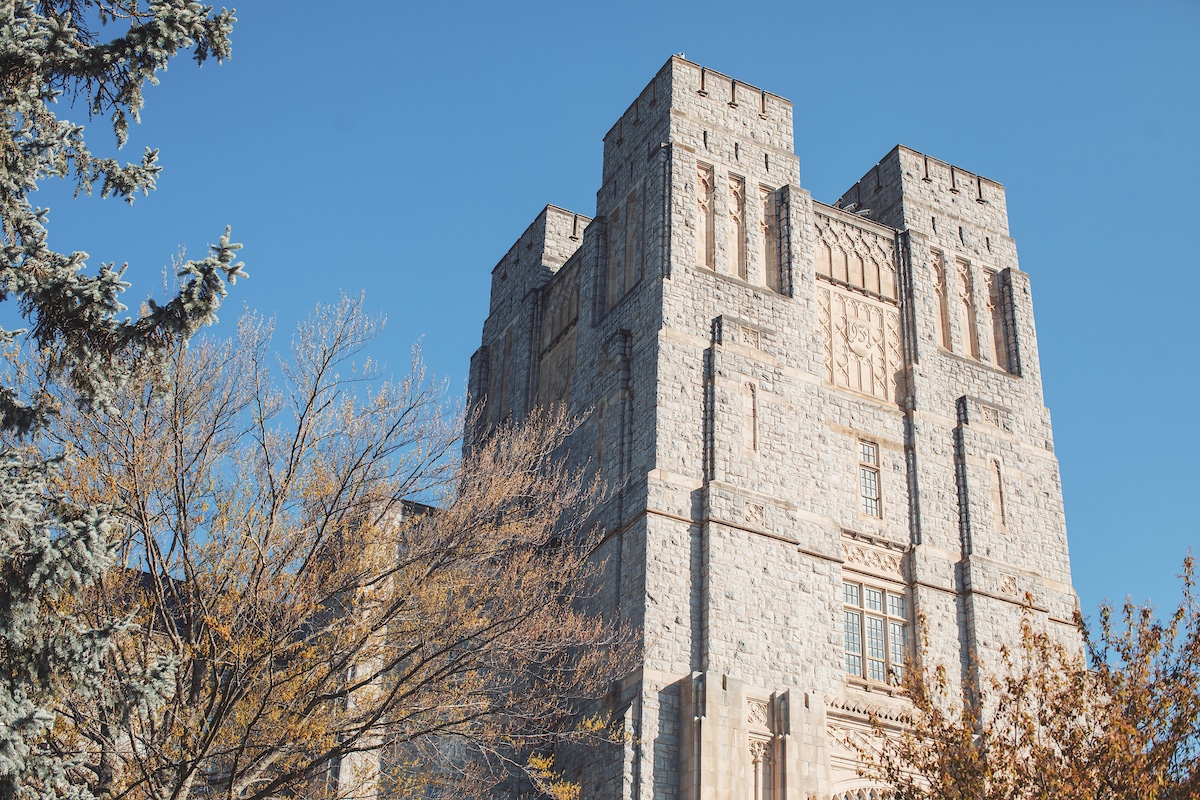As online learning becomes the new norm, working professionals now have more options to obtain an advanced degree while juggling their career and other life commitments.
Aspiring agricultural experts are experiencing a world-class education and the perks of learning online through Virginia Tech’s Online Master of Science in Agricultural and Life Sciences (OMALS). They earn the same accredited degree as an on-campus student, with more flexibility to achieve this goal. This means that, on average, students can take two courses (six credit hours) per semester, which allows them to complete the program in five semesters or less than two years.
“Virginia Tech is a comprehensive land-grant university, which means we are engaging in first-hand, practical research to improve both the educational process and the application of knowledge,” says concentration chair, Eric Kaufman. “Because the OMALS program is 100% online, we benefit from peer-learning that includes working professionals across the country and around the world. Also, the online format promotes and facilitates life-long learning, allowing participants to benefit even after they have completed coursework in the program.”

With Virginia Tech, students get all the perks of learning online – and a world-class education. Source: Virginia Tech, College of Agriculture and Life Sciences
The online format allows graduates like Kari Sponaugle, who works as a 4-H Youth Development Agent for the Virginia Cooperative Extension, to stay employed while completing her master’s degree.
“I needed to enroll in a master’s program and obtain a master’s degree to remain an Extension Agent,” says Sponaugle.
She chose the Leadership Studies concentration, which focuses on building a generation of well-rounded agricultural professionals who are prepared to lead in both formal and informal settings.
“Many people enter the workforce and discover ‘The Job Is Easy, The People Are Not!’ That realization is the title of a new book that highlights the ‘smart skills’ leaders need to manage the most complex variables: people,” says Dr. Kaufman.
“Within the Leadership Studies concentration, we go beyond the ‘airport books’ that convey an individual’s opinions about what makes for an effective leader. Through investigation of the research on leadership, we uncover the principles and practices that promote leadership effectiveness in a broad range of applications, including development and empowerment of others.”
Although it’s an online program, learning is collaborative. “While courses are taught by exceptional faculty, we also leverage opportunities for peer learning,” says Dr. Kaufman. “This approach helps ensure a rich learning environment that is rooted in current and practical scenarios. Furthermore, OMALS students receive coaching from their academic advisors that help them develop the skills and confidence needed to engage in lifelong learning.”
Above all, those pursuing the Leadership Studies concentration within the OMALS program learn how to become effective problem solvers within groups, organizations, and communities. They gain the know-how to critically analyze leadership theories, examine social responsibility, and assess collaborative leadership efforts.
It follows the guiding principle that underpins learning at Virginia Tech: “Ut Prosim” (Latin for “That I May Serve”). Dr. Kaufman explains how this principle guides everything from Virginia Tech’s approach to its follow-up with its graduates. “That culture helps our students find meaning in their OMALS projects,” he says.

The OMALS’s Leadership Studies concentration follows the principle of “Ut Prosim” (Latin for “That I May Serve). Source: Virginia Tech, College of Agriculture and Life Sciences
Final projects hold big value, and students have the opportunity to pursue projects that are meaningful to them. Dr. Kaufman remembers one OMALS project by a former student who is now an instructor in the program. His project was on the “Development of the United States Marine Corps International Affairs Personnel Education and Training Program,” which had practical value for the Marine Corps.
“In fact, most of our students complete projects that have immediate application for stakeholder groups, whether that be collegiate student-athletes or 4-H camping programs or Special Olympics volunteer coordinators,” he adds.
Courses are equally impactful. Students learn how to manage youth program funding, marketing, and volunteer management with the Youth Program Management course. Or how to lead a non-profit organization through the Essential Skills for Nonprofit Leaders course. They can also discover different leadership approaches through the Leadership Foundations for Diverse Contexts course.
By the end of the program, students are able to become cooperative extension agents, corporate consultants, project managers, program coordinators, directors or take on leadership roles in a majority of professional settings.
To learn more about this program and how to apply, click here.
Follow Virginia Tech on Facebook, Twitter, Instagram, YouTube, LinkedIn and Flickr













